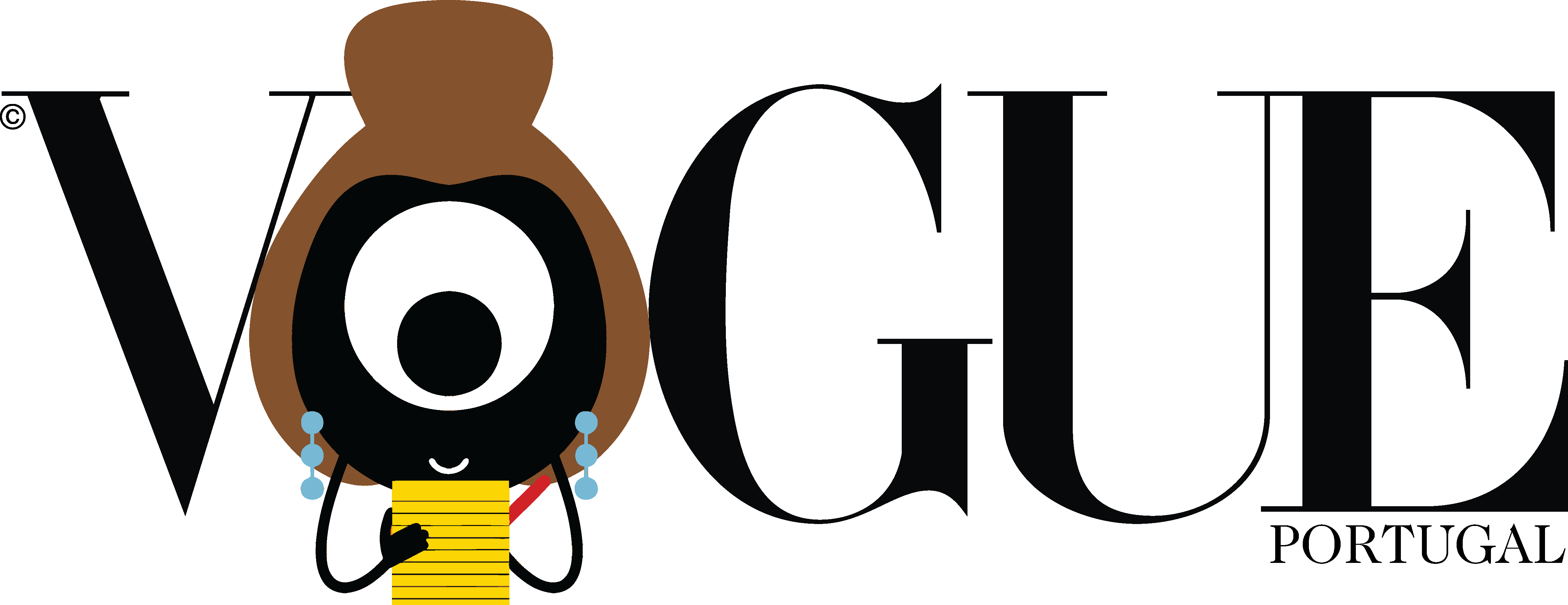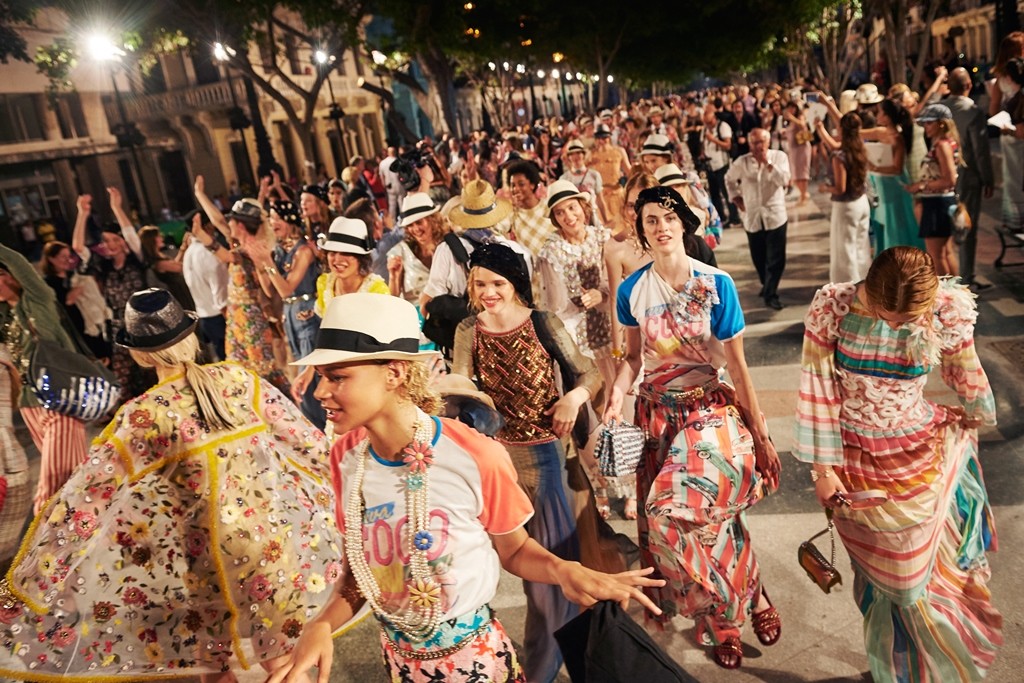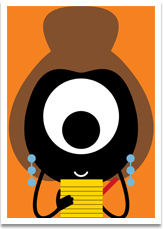“I SAID ‘CUBA’ as a joke when we discussed where Chanel could go next!” Karl Lagerfeld claimed, looking around the all-music, all-dancing party in a historic Havana square.
The Paris fashion house staged the first high-fashion show in Cuba since the 1953 revolution
The cathedral’s rainbow windows were as colourful as the 1950s open-topped Chevrolets in bubblegum pink, daffodil yellow and pale blue. These historic cars drove us to El Paseo Del Prado, the tree-lined colonial avenue from Cuba’s pre-revolutionary heyday.
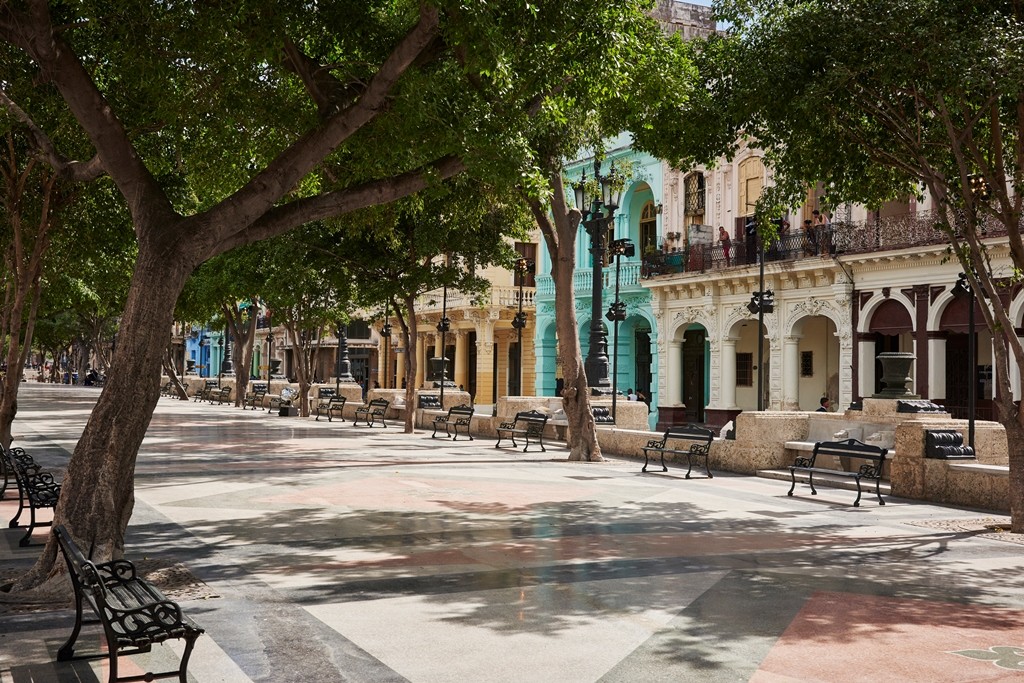
Here, the fashion crowd was greeted by Cuban bands while the locals, mostly shut away fromm this Chanel glamour, piled on every balcony of the pastel-painted houses to gawp, applaud and dance to the music.
After the visits of President Obama and The Rolling Stones, this Chanel Cruise show was surely the icing on the Cuban cake for those who want to cast off the country’s communist heritage.
But how could Karl compete with these exceptional surroundings? The Cruise show was an open-air parade of models with Cuban hats, funky bags and T-shirts under their tweeds announcing “Viva Coco Libra”.
The collection had a powerful sense of freedom, with calf-length skirts swinging to the music and showing the audience patterns of juicy flowers or those racy, colourful cars.
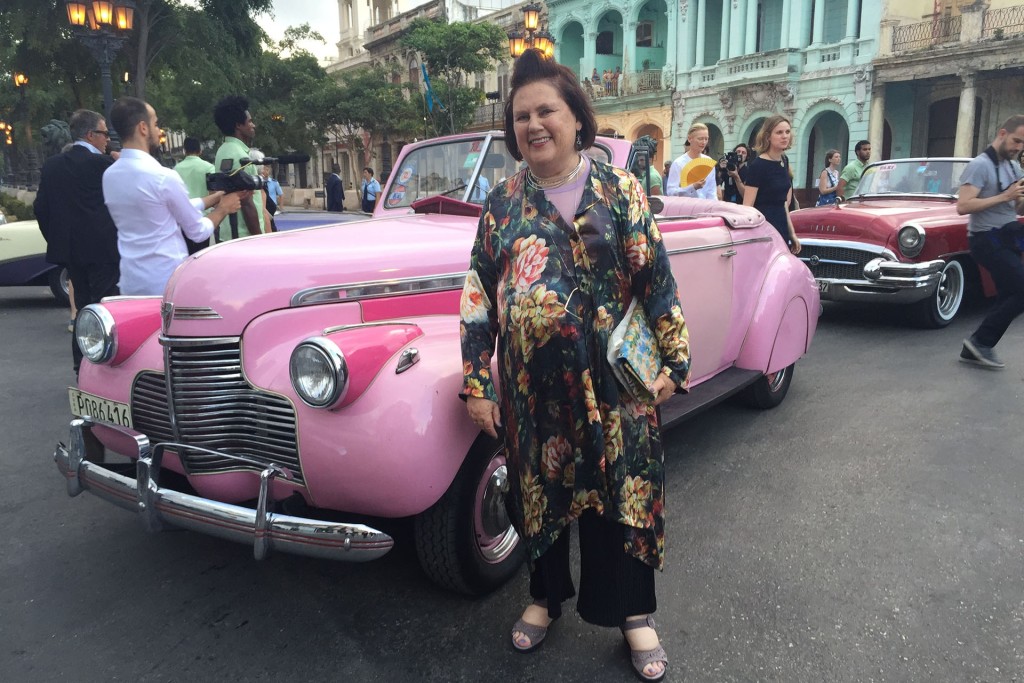
@SuzyMenkesVogue
As ever, Karl’s genius lies in his deep cultural knowledge, reflecting the pre-Castro era of Art Deco and American winter holidays in the sun, while hanging on to the Coco codes. These include tweed, even if the hot, sweaty, thunder-rumbling night had actress Tilda Swinton waving her buttercup-yellow fan and “Fast and Furious” movie actor Vin Diesel dressed down to a light shirt.
Passing out umbrellas as the first raindrops started to fall was a young man in a green check shirt who turned out to be Antonio Castro, the grandson of former Cuban President Fidel Castro.
This might have been a poignant historical moment or a tasteless flaunting of consumerism, depending on your point of view. But there was nothing flashy or vulgar about this Cruise collection.
By the time that Karl and his godson Hudson walked the marbled Paseo del Prado, Havana’s historic colonial-era avenue, the show turned into a party with supermodel Gisele Bündchen leading the open-air dancing with the crowds packed on the balconies joining in.
Karl said that he immersed himself in the cultural richness of Cuba and the show embraced the “Coco Cuba” T-shirt, while Chanel’s signature camellia might be tucked into a straw hat.
Easy calf-length dresses were touched with the house codes, even if those might be re-interpreted as spiky palm leaves on a full white skirt.
Flat sandals or 1950s kitten-heel shoes gave a feeling of freedom as the models strode the long walkway.
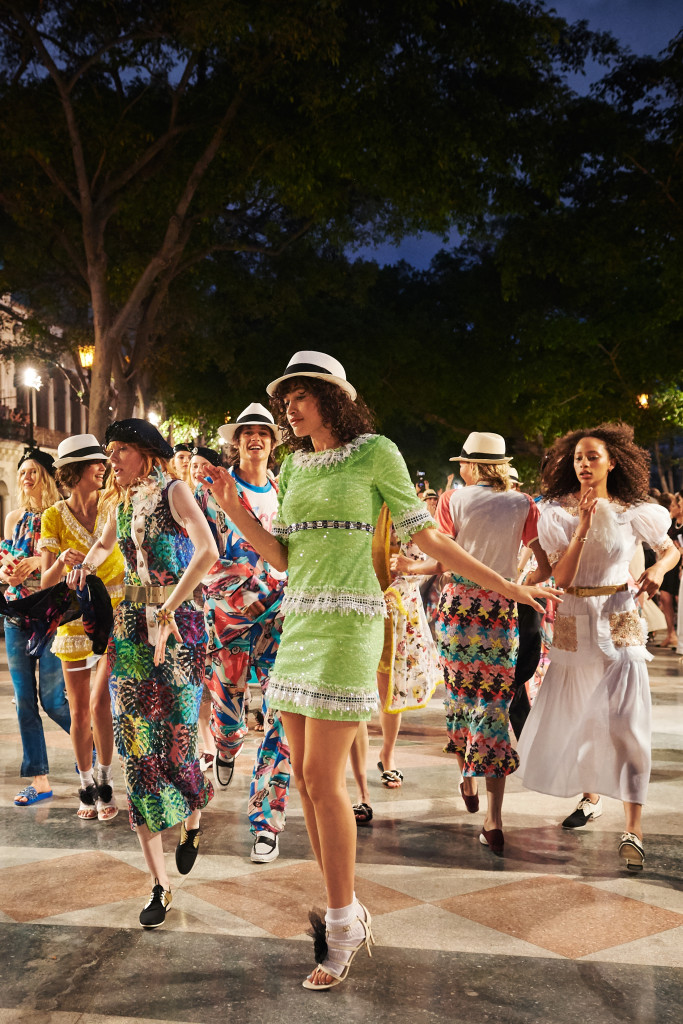
The originality of the collection, down to the smallest details, showed the best of Karl Lagerfeld: his cultural depth, his design skills, and his ability to bring the chic Parisian spirit to sporty clothes.
Panama hats off too for the Chanel studios, which turn ideas into reality. For example, a tweed suit had the hem dissolving into a fringe to match the giant shoulder bag.
This was Cuba imported into a fashion dreamscape, rather than the prosaic summer casual clothes worn by American tourists from the very first cruise ship to come from Florida since the 1959 Communist Revolution.
Was it inappropriate to hold this Chanel show in a country where poverty and a scraping-to-get by daily life has a face-off with fashion’s highest expression of luxury?
Looking at the art on display in a fledgling modern art gallery, converted from a former peanut factory, I remembered how often culture – and particularly fashion – is a bellwether of changing times. Chanel’s Havana holiday was far more a tribute to Cuba and its heritage than a capitalist statement woven in tweed.
